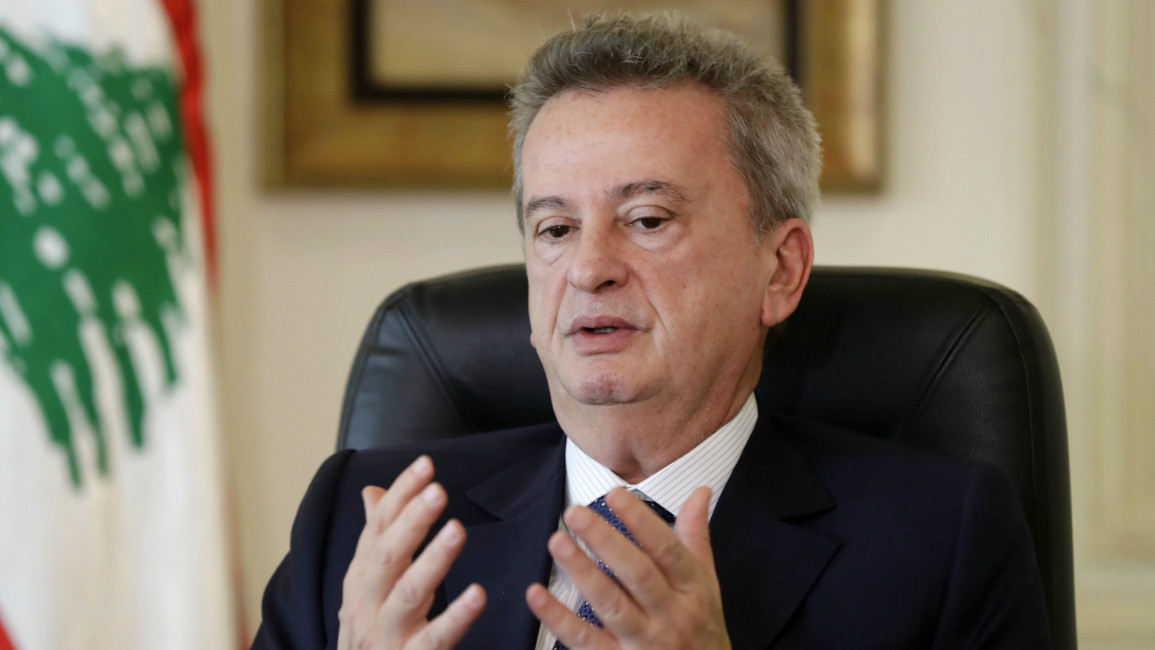Lebanon judge orders seizure of central bank governor's assets
The decision came after a group of lawyers and activists filed a lawsuit against Salameh for the governor's perceived role in the crisis.
The lawsuit charges Salameh with "undermining the financial status of the state, urging the public to withdraw funds deposited in banks and sell state bonds, in addition to job negligence and embezzlement", according to the reports.
Salameh has been widely blamed for his perceived mishandling of Lebanon's currency crisis, with critics of the the banker ranging from young activists to the country's current Prime Minister Hassan Diab.
The governor previously defended himself against the criticism, claiming there is a “systematic campaign” meant to hold him responsible for the country’s financial crisis.
In May, Salameh allegedly sued prominent Lebanese journalist Dima Sadek for having "tarnished the reputation of banks and the prestige of the economy".
Also in May, Lebanese authorities arrested the central bank's director of monetary operations, who was subsequently charged with manipulating the exchange rate.
A judge last week requested an investigation into claims made by a former finance ministry official that local banks "smuggled" close to $6 billion out of the country, despite the capital controls being put in place since October.
After Lebanon defaulted on its sovereign debt in March, the government pledged a financial rescue plan and in May started talks with the IMF on unlocking billions of dollars in aid.
But sources familiar with the talks say they have hit a wall, with an alleged lack of commitment to economic reforms and disagreements over the scale of financial losses for the state, central bank and commercial banks.
Earlier this month, United Nations High Commissioner for Human Rights Michelle Bachelet said Lebanon's financial crisis is "fast spiralling out of control, with many already destitute and facing starvation as a direct result of this crisis".
"The alarm has been sounded, and we must respond immediately before it is too late," said Bachelet.
Lebanon is grappling with its worst economic crisis since the 1975-1990 civil war, with deteriorating living conditions sparking widespread protests since October and plunging almost half the population into poverty.
Banks have severely restricted dollar withdrawals and the Lebanese pound has plummeted to record lows on the black market, sparking rapid price hikes.
The economic woes sparked mass protests against a political class deemed irretrievably corrupt.
Follow us on Facebook, Twitter and Instagram to stay connected



